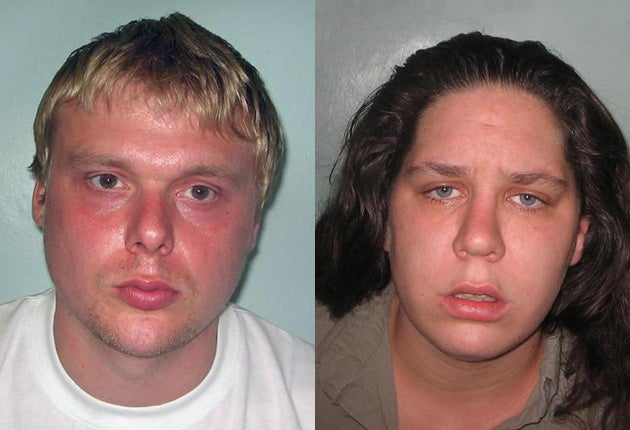Baby P's killers: the untold story

The identities of the mother of Baby P and her boyfriend, both of whom tortured and killed the 17-month-old child, can finally be revealed today, more than two years after the toddler died.
Tracey Connelly, 28, and Steven Barker, 33, abused the child, who can now be known by his full name, Peter Connelly, over a period of eight months, causing him 60 separate injuries including a broken back and ribs.
He suffered all of these injuries despite the fact that he was on the child protection register at Haringey council. He was found dead in his cot in Haringey, north London in August 2007.
The pair were convicted of causing or allowing the death of a child at the Old Bailey last November. Jason Owen, 37, was convicted of the same offence. His identity has never been protected by legal restrictions, but he has always been referred to only as the pair's lodger. It can now be revealed that he is Barker's older brother, and that Barker and Owen were charged with grievous bodily harm after an assault on their grandmother in 1995. She died of pneumonia in 1996 but the charge was dropped due to a lack of evidence. They were never pursued for a more serious charge because there was no medical evidence to link the assault to her death.
Despite Connelly and Barker's names and pictures appearing on the internet almost a year ago, a High Court order has prevented the press from identifying them. That order expired at midnight last night. It was made partly because of the need for their names to be kept secret to ensure they received a fair trial for a subsequent offence.
In April, Barker went on trial accused of the rape of a two-year-old girl. Connelly was alongside him in the dock accused of child cruelty after it was alleged that she witnessed the rape but did nothing to stop it.
Barker was found guilty of rape and Connelly was acquitted. But their second Old Bailey trial only went ahead after some extraordinary lengths had been taken to ensure that the jury would not be aware of their role in Peter Connelly's death. The judge imposed a complete reporting ban – forbidding the media to even refer to the existence of the second trial until its completion – and, in a legal first, agreed that they should be tried under false names – Barker becoming Steven Young and Connelly Tracey Wilson.
The ban on reporting their real names, pictures and addresses was, without exception, adhered to by all newspapers and broadcast media outlets. But many websites openly flouted the law. Since the day they were convicted last year, pictures and details of Connelly and Barker have been readily accessible on the internet.
At the beginning of the rape trial the prosecution barrister, Bernard Richmond QC, attempted to have the case thrown out, saying that the social networking site Facebook had made the prospect of a fair trial impossible. He listed a number of Facebook "groups" that named Barker or Connelly and said they had close to one million members – meaning that there was a high risk that potential jurors would recognise the defendants.
At the end of that trial the reporting restrictions were eased slightly so that the case could be reported. But the High Court order remained in place until last night. There are still some details of the cases that will never be able to be revealed to the public.
Connelly, Barker and Owen were all sentenced in May this year. Connelly was was given an indeterminate prison sentence and told she would be eligible for parole in just over three years. Barker was jailed for 12 years for his part in Peter Connelly's death and given a life sentence, to run concurrently, for the separate offence of raping a two-year-old girl. He was told he must serve a minimum of 10 years and will be eligible for parole after eight. Jason Owen was given an indeterminate sentence with a minimum of three years and could be out in two if he satisfies the parole board he is no longer a danger to the public.
Despite the relatively low minimum tariffs handed out it is unlikely that either Connelly or Barker will make parole at the first attempt. And because of the life sentence given to Barker and the indeterminate sentences given to Connelly and Owen, it is possible that all three could spend the rest of their lives behind bars.
